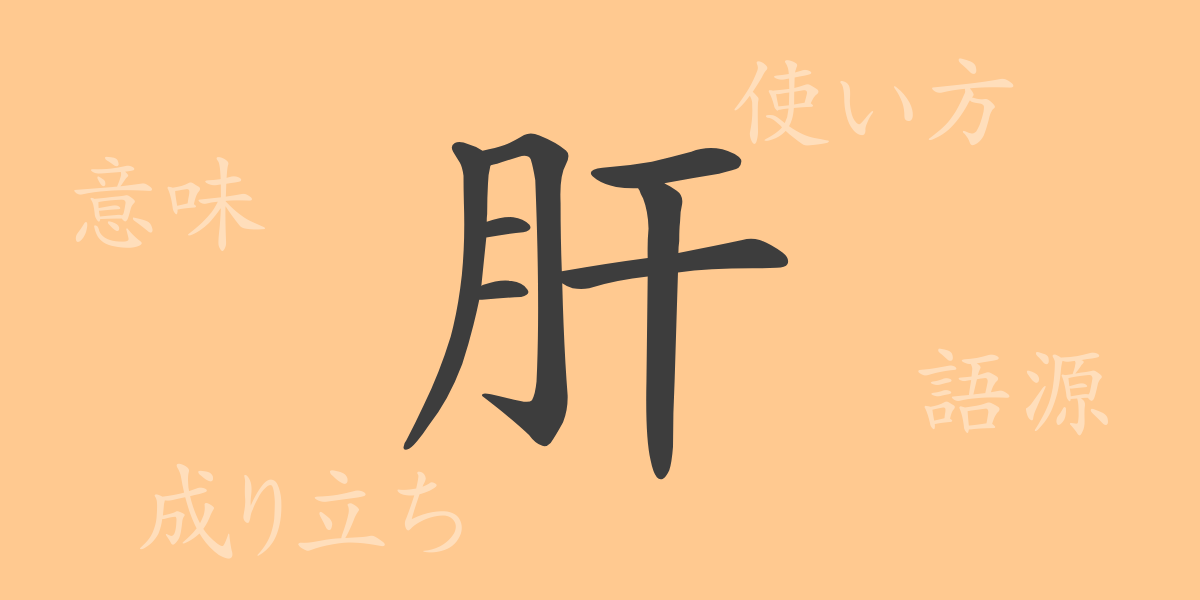In the Japanese language, there is the kanji “肝” (Kan). At first glance, it may seem like a word that simply refers to a part of the body, but this kanji is deeply rooted in Japanese language and culture. This article explores the full picture of “肝” (Kan), starting from its etymology to its meaning, usage, pronunciation, number of strokes, radical, and even idioms, phrases, and proverbs that use this kanji. Let’s delve into the world of “肝” (Kan) as a common kanji in Japan and reacquaint ourselves with its significance.
The Origins of 肝 (Kan)
The kanji “肝” (Kan) originated in ancient China and its form originally represented a part of the body. This character, which signifies the liver, resembled the membrane that encloses internal organs, leading to its association with the body’s interior, especially the liver. In Chinese classics, the liver is also considered the center of spiritual and emotional activity, emphasizing its importance.
Meaning and Usage of 肝 (Kan)
In modern Japanese, “肝” (Kan) is directly used as a medical term for the liver. However, it is also widely used in a figurative sense, such as “肝心” (Kannjinn) meaning “the most important thing,” and “肝要” (Kannyou) meaning “extremely important,” to denote something central or crucial. Expressions like “肝が据わっている” (Kimo-ga-su-watteru /having a steadfast liver) are also used to describe someone with courage or nerve.
Pronunciation, Number of Strokes, and Radical of 肝 (Kan)
Let’s look at the pronunciation and structure of the kanji “肝” (Kan).
- Pronunciation: The onyomi (Chinese reading) is “かん” (Kan), and the kunyomi (Japanese reading) is “きも” (kimo).
- Number of Strokes: There are 7 strokes in total.
- Radical: The radical is “肉” (Nikuzuki), or in its abbreviated form, “月” (Tuki).
Idioms, Phrases, and Proverbs Using 肝 (Kan) and Their Meanings
There are various idioms, phrases, and proverbs that include “肝” (Kan), such as:
- 肝心 (Kannjinn): The most important thing or part.
- 肝要 (Kannyou): Extremely important.
- 肝に銘じる (Kimo-ni-mei-jiru): To deeply engrave something in one’s heart.
- 肝を冷やす (Kimo-wo-hi-yasu): To have a terrifying experience.
- 肝を抜かれる (Kimo-wo-nu-kareru): To be greatly shaken by surprise or fear.
These expressions are widely used in everyday conversation, literary works, and business settings.
Conclusion on 肝 (Kan)
The kanji “肝” (Kan) is not just a reference to a part of the body but plays an important role in expressing the psychology, emotions, and various aspects of life in Japanese culture. Through this kanji, we can understand the breadth of expression in the Japanese language and the cultural significance behind the words. As one of Japan’s common kanji, we can once again appreciate the weight that “肝” (Kan) holds in our language.

























